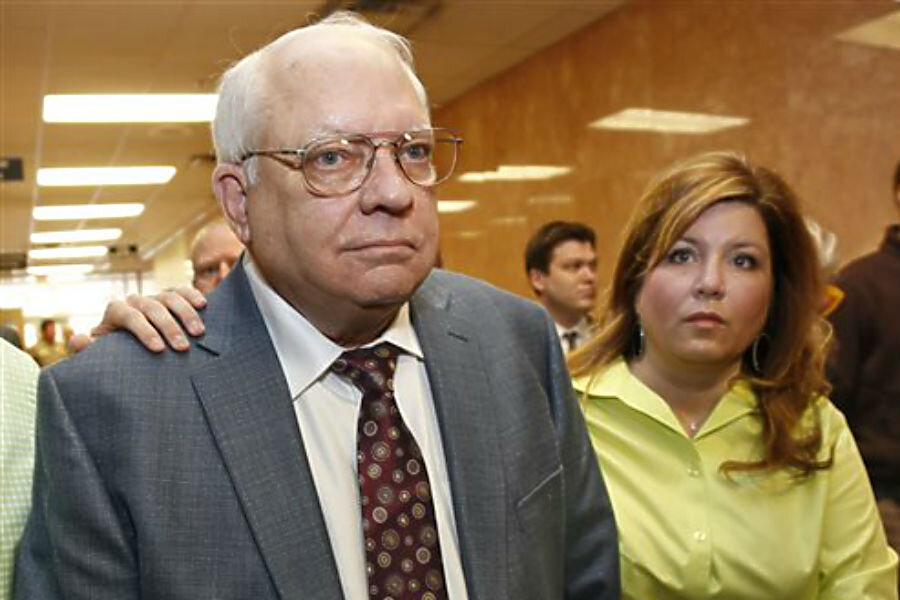Oklahoma volunteer deputies: How to prevent another stun gun mistake
Loading...
| Oklahoma City
Oklahoma law allows former law enforcement officers to return to the profession as reservists with little training, but the state's top law-enforcement trainer is pushing for changes after a volunteer deputy — a patrolman for only a year in the 1960s — fatally shot an unarmed suspect.
Steve Emmons leads the Council on Law Enforcement Education and Training, which oversees law enforcement training statewide. He is working with lawmakers to require more training after 73-year-old insurance executive Robert Bates, a volunteer for the Tulsa County Sheriff's Office, said he mistook his handgun for a stun gun before fatally shooting Eric Harris this month.
"Currently there is no requirement for continuing education once they become certified, so that's one area that we're going to be taking a look at," Emmons said.
Bates — who has pleaded not guilty to second-degree manslaughter — was out of law enforcement for 35 years before returning as a volunteer. But other than passing an annual firearms certification, Oklahoma law didn't require any additional training because he attended a police academy in 1964 and served a year as a patrolman in Tulsa.
Emmons noted that the law was changed a few years ago to mandate a one-day course on the latest legal updates, but he said reservists like Bates were "grandfathered" in and aren't required to take the course.
"If people have a long period of time between the time they served ... they need to do some additional firearms training, training on the use of force," said Rep. Mike Christian, a former Oklahoma Highway patrolman who backs Emmons' effort.
Christian said he also wants to require that officers qualify using the same firearm they carry in the field. Training records released by Bates' attorneys show he qualified on a .45-caliber pistol, not the .357 revolver he used to shoot Harris.
"That's definitely something we need to look at," the Oklahoma City Republican said.
Authorities have said Harris was shot after he ran during a sting investigation involving gun sales.
Harris' family has questioned whether Bates was qualified to conduct police work. Their attorneys allege that the Tulsa County Sheriff's Office violated its own policies by not keeping a permanent record of Bates' certifications and allowing him to carry his personal handgun after training on another weapon.
But Sheriff Stanley Glanz said Bates — his longtime insurance agent and former campaign chairman — had been properly trained and passed annual firearms certifications required by the state. Bates' attorneys also provided documents that show he received more than 270 hours of training during his seven years as a reserve deputy, although none of it was mandated.
Bates sold his insurance business for $6 million in 1999, then returned to law enforcement work as a volunteer in Florida in 2000, and then in Tulsa County in 2008. Bates also made several donations to the Tulsa County Sheriff's Office, and was Glanz's campaign chairman during the 2012 election.
___
Follow Sean Murphy at www.twitter.com/apseanmurphy





